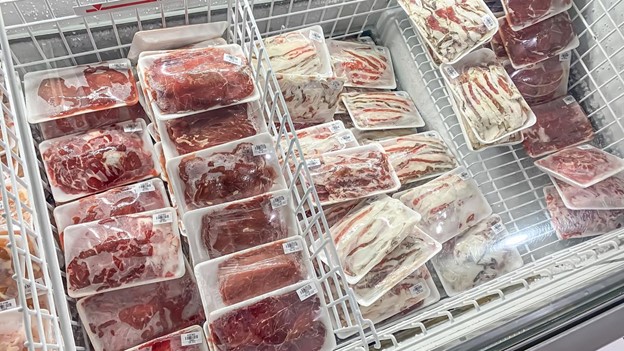Srinagar: The Government of Jammu and Kashmir has imposed an immediate ban on the manufacture, storage, transportation, distribution, and sale of frozen and chilled meat products that fail to meet statutory safety and labeling standards under the Food Safety and Standards Act (FSSA), 2006.
The prohibitory order, issued by Smita Sethi, Commissioner of Food Safety (Commissioner, Food & Drugs Administration), J&K, follows extensive inspections by the Food Safety Wing of the Drugs and Food Control Organization, during which large quantities of rotten, decomposed, and unlabelled meat products were found at multiple locations across the Union Territory. The unsafe stocks were subsequently seized and destroyed in accordance with law.
According to the order, the seized products were missing mandatory labeling particulars such as the batch or lot number, date of manufacture, expiry date, storage conditions, FSSAI licence number, and manufacturer’s details, all of which are required under the Food Safety & Standards (Labelling & Display) Regulations, 2020. In several cases, the available information was either illegible or incomplete, making the products unsafe and misleading for consumers.
The Commissioner noted that under Section 3(1)(zz) of the FSSA, 2006, such food items fall within the definition of “unsafe food”, thereby attracting penal provisions under Chapter IX, including Section 59 of the Act.
Citing the Food Safety and Standards (Licensing & Registration of Food Business) Regulations, 2011, the order reiterated the minimum statutory standards for handling and storing frozen and chilled meat products, which include that frozen meat must be stored and transported at −18°C or below; chilled meat must be maintained at 0–4°C for short-term handling; frozen meat should carry a ‘date of freezing’ and must not be sold beyond 12 months from that date; E-commerce deliveries must ensure at least 30 percent of total shelf-life or 45 days before expiry, whichever is earlier, remains at the time of delivery; storage and transport facilities must have calibrated temperature monitoring devices with proper records; and the meat product label must clearly specify the animal species (e.g., goat meat, chicken, buffalo meat, etc.).
The order further stated that, as per Section 18(1)(f) of the Act, if there are reasonable grounds to suspect a food may pose a risk to human health, the Food Authority and the Commissioner of Food Safety are bound to take preventive measures and inform the public about the nature of the risk and actions taken.
Sethi emphasized that the action is being taken under Section 30 of the Food Safety & Standards Act, 2006, empowering the Commissioner of Food Safety to prohibit the manufacture, storage, or sale of any food article in the interest of public health for a specified period.
“Having regard to the inspection findings and the potential health risk involved, a condition exists across the Union Territory that requires immediate preventive action in the interest of public health,” the order reads.
The ban will remain in force until further orders or until the administration is satisfied that the health risk no longer exists. (With inputs from KINS)








